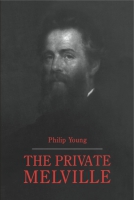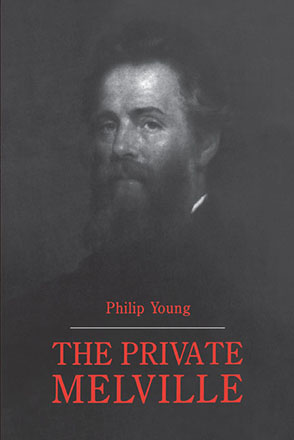The Private Melville
Philip Young
“The Private Melville is a delight to read. Wise, learned, witty, and thoughtful, it moves very smoothly even when it is covering tangled biographical and scholarly ground. In fact, it doesn’t read like a scholarly book at all, even though it is based on an extremely close and detailed and almost loving reading of sources, interpretations, and archival alluvia.”
- Description
- Reviews
- Bio
- Subjects
The second type concerns four Berkshire Tales that depend heavily on "private jokes," and thus have secret meaning that escaped the editors who printed them and continue to evade critics and scholars. The third kind deals with two "fictions" so little understood that the meaning might as well be secret: a speech of Ahab's, which is called the "spiritual climax" of Moby Dick; and Melville's very last fiction, Daniel Orme, a self-portrait in which he has gone pretty much unrecognized.
“The Private Melville is a delight to read. Wise, learned, witty, and thoughtful, it moves very smoothly even when it is covering tangled biographical and scholarly ground. In fact, it doesn’t read like a scholarly book at all, even though it is based on an extremely close and detailed and almost loving reading of sources, interpretations, and archival alluvia.”
“The Private Melville is personal, even private (as the topic mandates), and idiosyncratic; it is opinionated and provocative. It contains no trace of fashionable jargon: where are the Poetics of Privacy? Instead, it proceeds from manuscript evidence and from texts of literary works. Young addresses a broad audience that will be eager to follow the seemingly random, indirect probings of a fine intellect in intense pursuit of disparate phases of Melvillean experience.”
Philip Young was Evan Pugh Professor of American Literature Emeritus at the Pennsylvania State University and author and editor of many books, most notably Ernest Hemingway (1952) and Ernest Hemingway: A Reconsideration (Penn State, 1966).
Mailing List
Subscribe to our mailing list and be notified about new titles, journals and catalogs.




